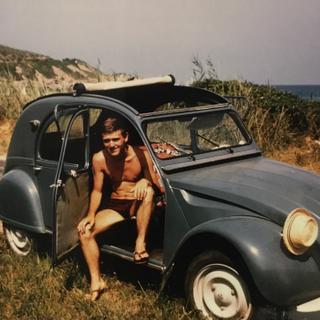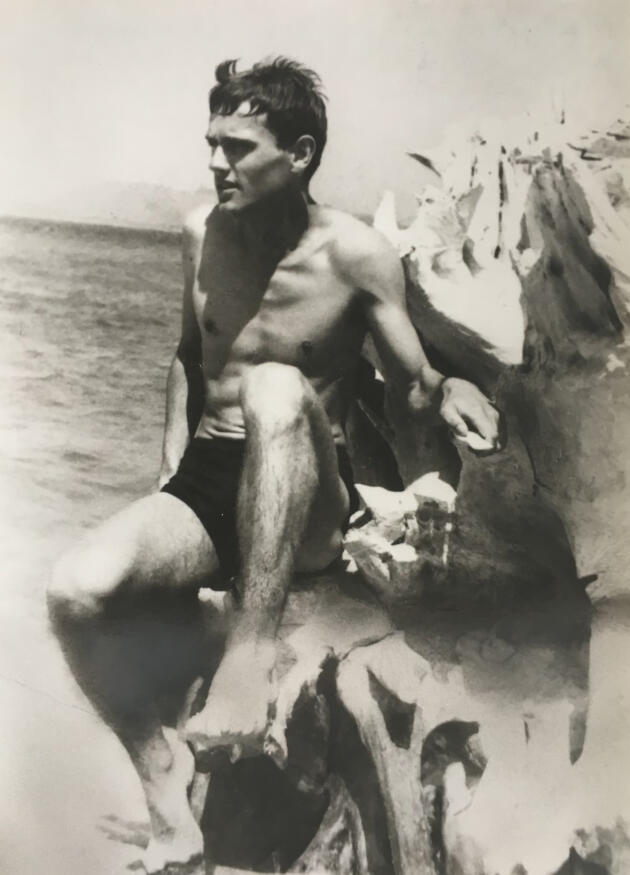

Stories of France's repression of homosexuality: 'Every time someone like me dies, a light goes out'

Stories of France's repression of homosexuality: 'Every time someone like me dies, a light goes out'
Long Read'The underground years' (2/5). In 1960s and 1970s France, gay men were still outcasts, often arrested by police and charged under a discriminatory law that was abolished in 1982. Le Monde met with survivors of this era.
Who amongst Nantes' movie buffs had any idea that Jean-Serge Pineau and Henri Le Callonec, the managers of the Katorza arthouse cinema in the heart of this western French city, had served time in prison before living together for over 40 years? Their lives could have inspired one of the films in their program, but their past was not one to be flaunted. Almost 20 years after his uncle Henri's death, Alexandre Le Callonec, 39, revealed this love story from a different time to Le Monde. Since Jean-Serge died at the end of 2020, Henri's nephew has been far more than just this deceased couple's official successor: He is the heir to a heartbreaking family secret.
Their story takes place before August 4, 1982 – the largely unknown date when a bill initiated by Robert Badinter, justice minister under President François Mitterrand, abolished a law enacted during the Second World War by Philippe Pétain and his collaborationist Vichy government. The new law, which authorized relations between two consenting persons of the same sex from the age of 15 – the same age as for heterosexuals – rather than from the age of legal majority, brought homosexual peoples' rights into line with those of heterosexuals.
In the meantime, however, LGBTQ+ people between the ages of 15 and 21 risked fines and even prison sentences. Such was the way in France during the "thirty glorious years" (a period of economic growth from 1945 to 1975): The "pédés" – a homophobic slur that our witnesses used to describe themselves – were outcasts who lived shrouded in denial or unease.
With his mischievous gaze and brown mustache, Jean-Serge Pineau was the son of a Nantes family of luxury car dealers who became cinema owners. In 1959 – at the age of 27 – he took over the management of the Katorza, a beautiful cinema complex where you could buy traditional Pierrot Gourmand lollipops from the white-gloved usher girls. The city would flock there to discover the latest Rivette release, or a preview screening of the upcoming Antonioni film. The 1,400 seats of the orchestra, mezzanine and balcony would be packed with the likes of Jean-Luc Godard, Marguerite Duras and Jacques Demy, who would willingly join in the smoke-filled debates organized by Jean-Serge and Henri – who had become the cinema's accountant and then its director.

They first met on November 22, 1960, a day that would remain etched in the couple's intimate memories. On that Tuesday, outside the post office in Nantes, Jean-Serge crossed paths with Henri, a young man with blond curls and a resemblance to Marlon Brando. Henri was due to turn 17 four days later, and was studying accounting at a boarding school in the nearby city of Saint-Nazaire. He already knew he was gay then, and wanted to escape his family. Jean-Serge, 10 years his senior, had initially thought that his own inclinations might change. He had introduced several "girlfriends" to his parents as a diversion; and once agreed to follow a treatment based on "injections," since his family had described him as "sick." To no effect, of course.
You have 90% of this article left to read. The rest is for subscribers only.
